Pretty Enough To Eat
Gone are the days where 'salad' meant a limp lettuce leaf and a dollop of salad cream (in the UK) or ranch dressing (in the USA)! Leaf crops such as spinach, peppery arugula and crunchy kale jostle with a tantalizing blend of colorful lettuce varieties. Harvest some young beet leaves, carrot tops and herbs and you have a fabulous base to add cherry tomatoes, sliced cucumbers, bell peppers and spring onions. The adventurous chef may even sprinkle in a few edible flowers for a garnish.
Buying all those ingredients at the store isn't cheap, however, and how often have you had to throw out the last of the salad leaves because it went bad? The good news is that we can grow all of these in our own gardens – even if we only have a small patio. If you're new to edible gardening start with something easy such as lettuce, especially if you grow one of the 'cut and come again' or mesclun' blends.
How to grow lettuce
Whether you are planting in the ground or a container be sure the soil is weed free and friable (that just means that it crumbles easily in your hand rather than a wet clod of clay or superfine and sand-like). Do not fertilize; too much nitrogen can make the flavor bitter
Select an area that receives 4-6 hours of direct sun each day, preferably in the morning. Many lettuce varieties will bolt in high summer and/or hot afternoon sun and actually prefer to get direct morning sun but afternoon shade. You may be able to shade them by planting on the eastern side of a row of tall tomatoes or beans for example
Loosely sprinkle the seed onto the soil surface as directed on the packet, cover with ~1/4" soil and water thoroughly but gently.
If you are planting out seedlings space them approx. 6" apart to allow room for them to grow. I use a row marker to keep the lines straight.
Keep the soil bed moist.
Harvesting
For cut and come again varieties harvest leaves with scissors, leaving the main plant in situ.
For head lettuce thin to spacing indicated on the packet (eat the thinnings!)
Sow small amounts of seed every 2-3 weeks to extend the harvest
Tips
There is no need to work lettuce into a crop rotation. Just plant them where space permits between slower growing plants.
Water in the morning to reduce the likelihood of fungal disease developing.
Problems
Slugs – use Sluggo Plus or set beer traps
Bolting – some varieties are more prone to this than others. Also dry soil can cause this.
Squirrels, rabbits and more! – Rabbits won't jump into beds that are 18" tall so a taller container or custom height raised bed may be your answer. Squirrels were an unexpected challenge when we filmed our class in San Diego but we think we have them thwarted by adding a hoop structure over a raised bed and covering it with window screen.
Favorite varieties
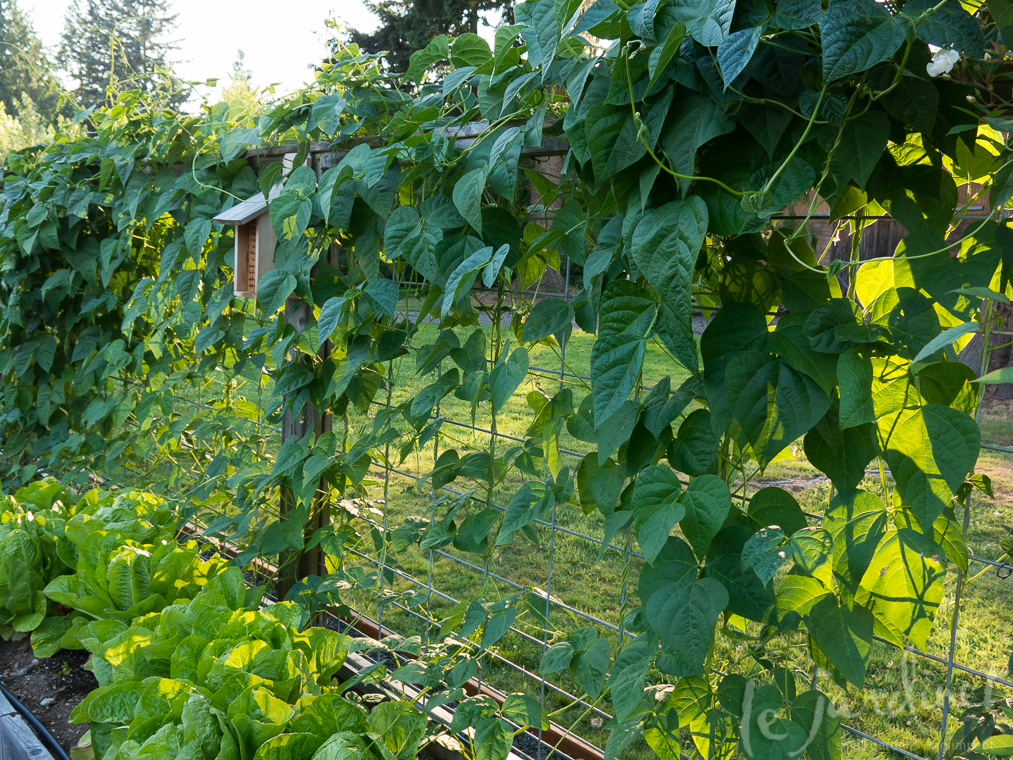
I grow Jericho head lettuce at the base of beans to make the most of space but also give some shading
There are SO many to choose from but I always leave room for;
Jericho – a crunchy, romaine type lettuce that is very resistant to bolt.
Little Gem – a classic semi-cos variety that is crunchy but tender
Gourmet Baby Greens – a mesclun mix from Botanical Interests
Interested in more ideas for easy vegetable gardening? You might also enjoy The Movable Feast.
Resources
Building a Raised Bed Garden; our NEW video class for Craftsy teaches you everything you need to know with step-by-step instruction. Discover more and get up to a 50% discount!
Raised Bed Workshop; live in the Seattle area? Join Andy and I in our garden May 16th for a morning of instruction, demonstration, and inspiration. Limited space – get the details

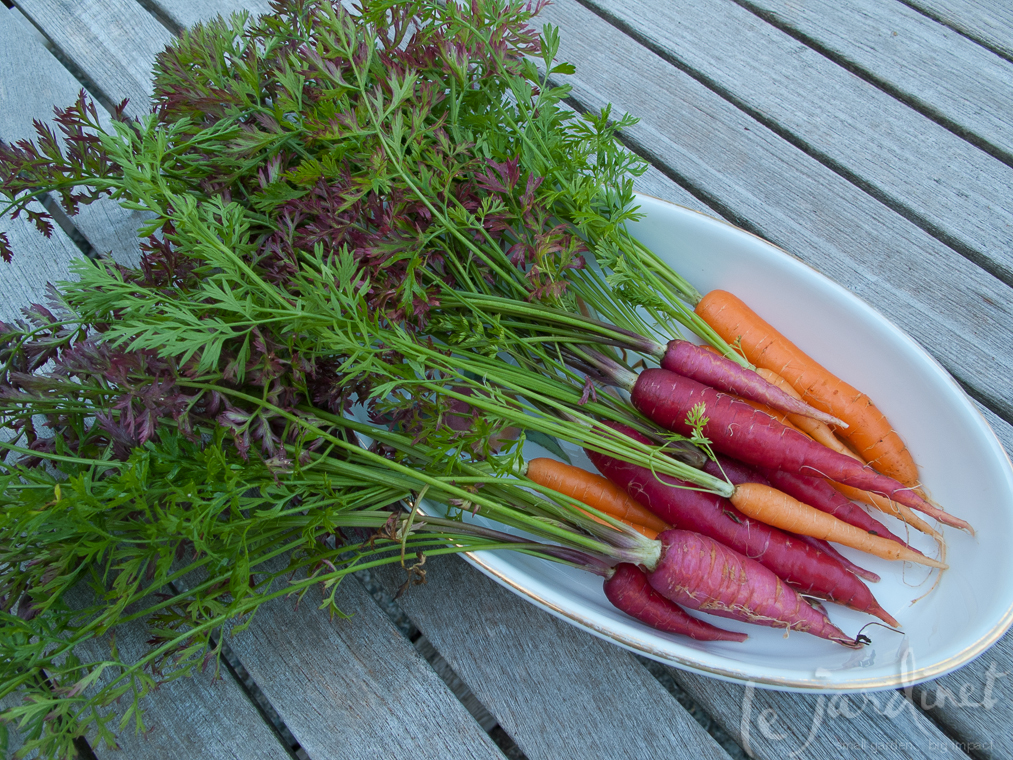
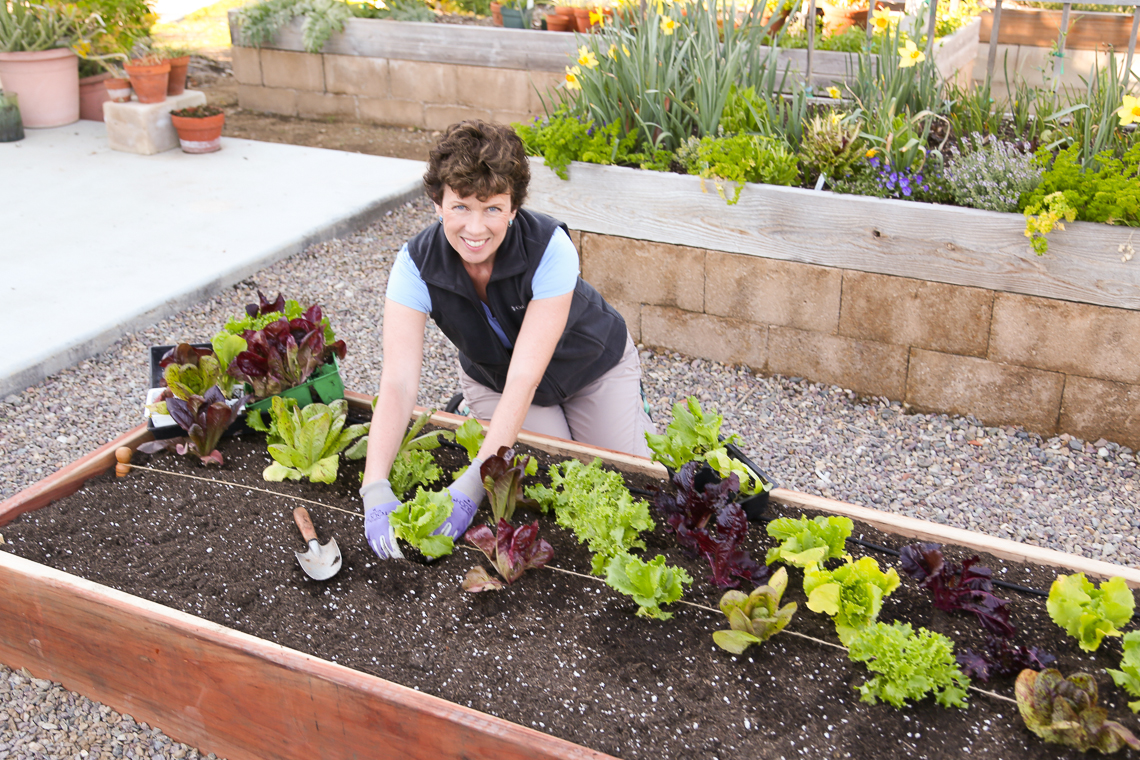
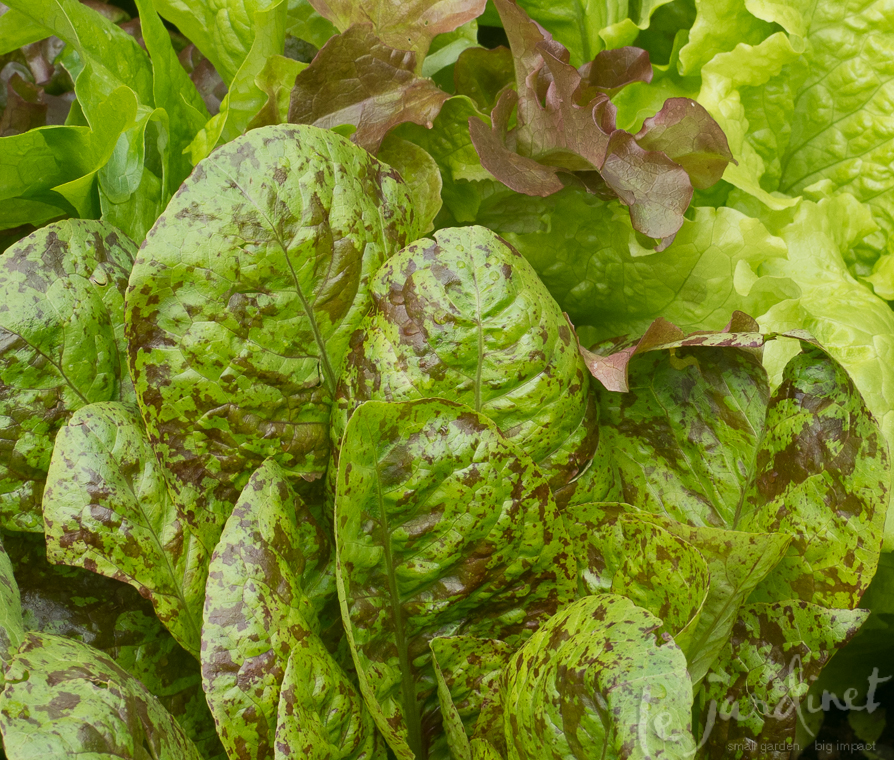
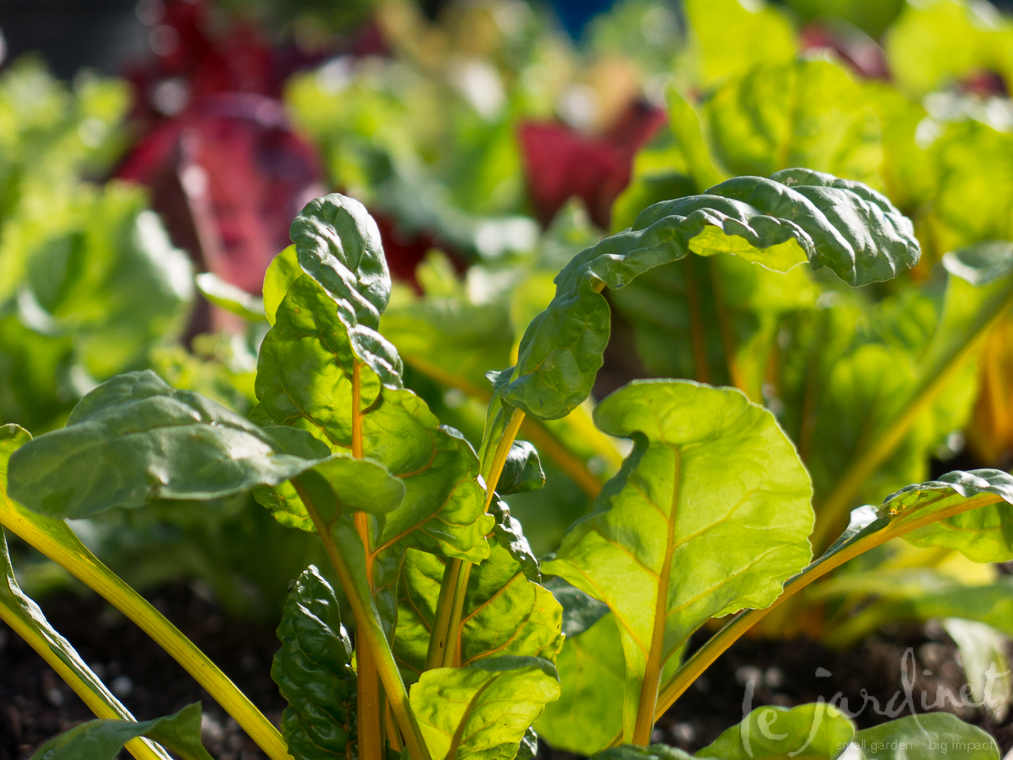
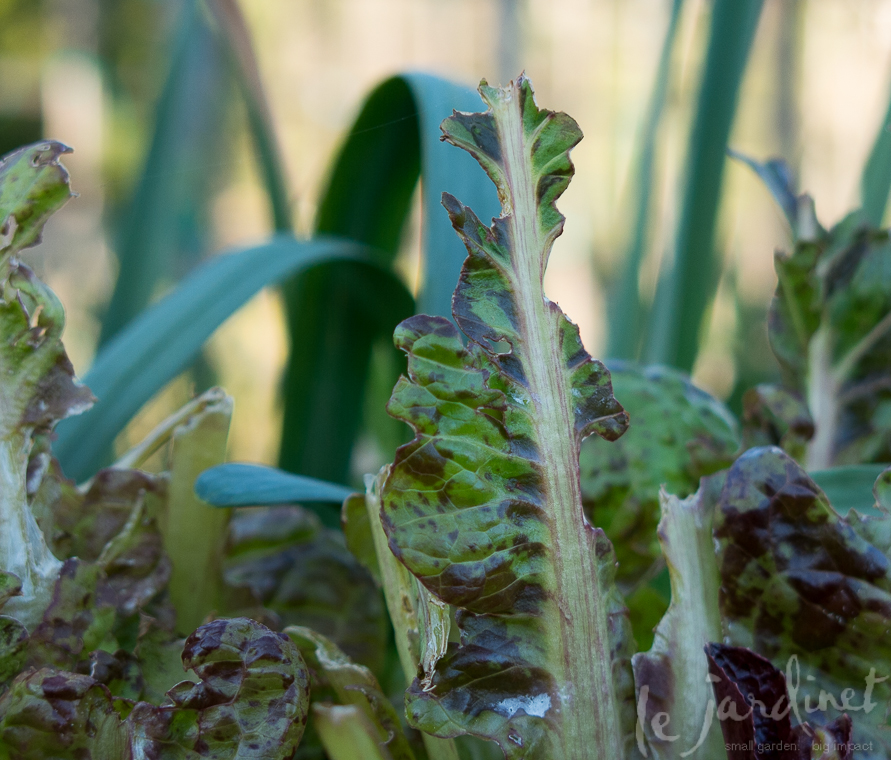
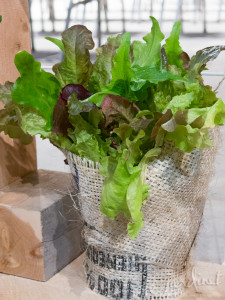
Karen! This was so interesting, especially the bit about morning sun… the need for afternoon shade with the lettuce. Attempting your salad suggestions for 3 extra containers, for the deck &/or side.
Can't wait to see it Alyson!